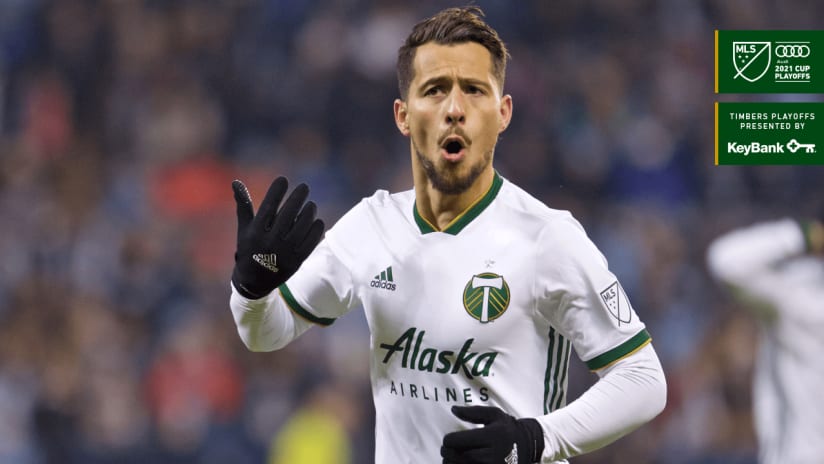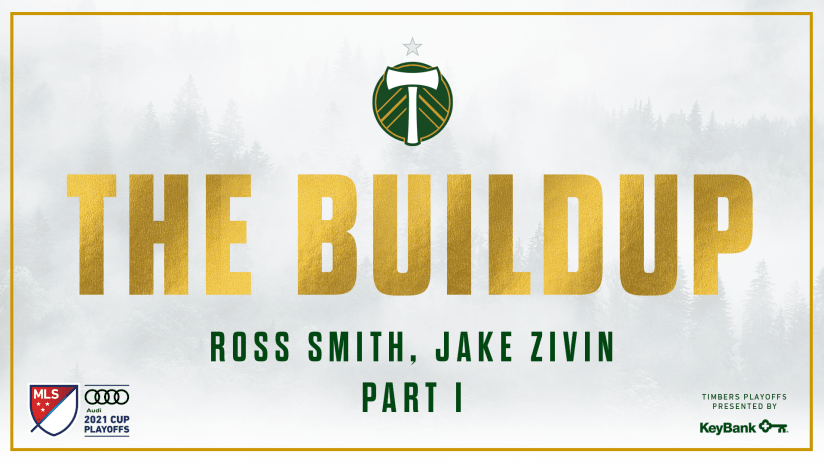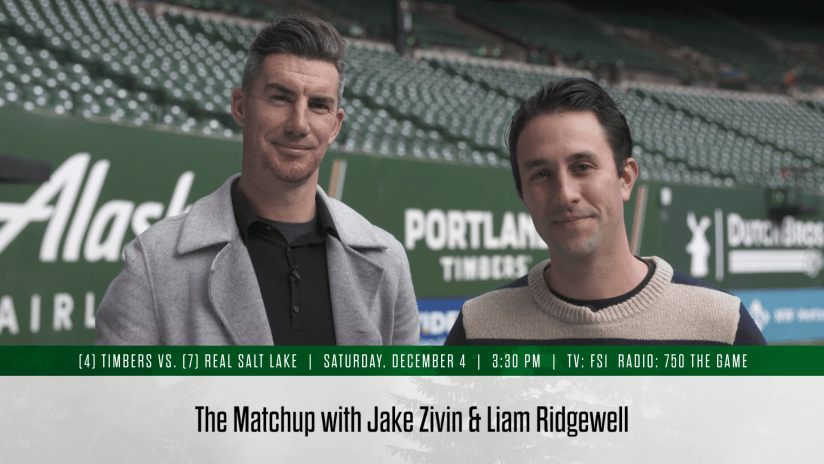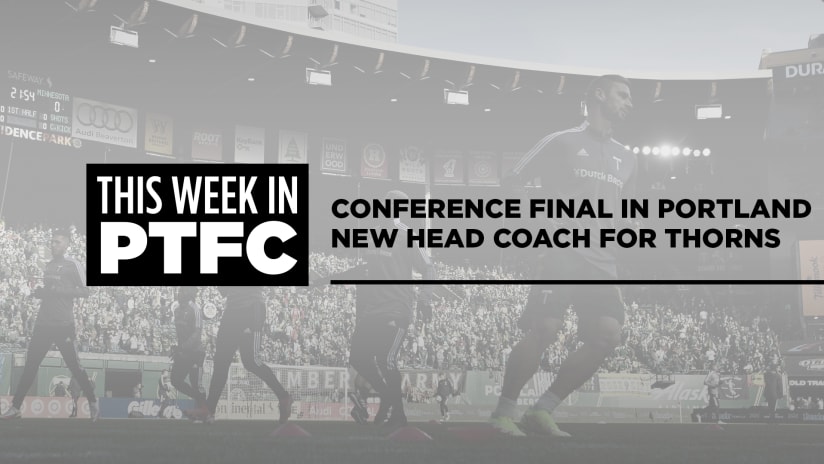BEAVERTON, Ore. — The Portland Timbers have been to four conference title games in the club’s Major League Soccer era, but the history of games like the one Providence Park will see on Saturday, when Real Salt Lake visits Goose Hollow with an MLS Cup final spot on the line, dates back to Timbers’ first-ever season. In 1975, Portland defeated the St. Louis Stars, 1-0, at what was then called Civic Stadium. In year one, the Timbers were off to the Soccer Bowl.
Portland was back in an NASL conference championship three years later, and in Major League Soccer, they’ve made final fours an even more regular occurrence. Since joining MLS in 2011, the Timbers have been to this level of the postseason on four occasions, each of which have come in the past nine seasons.
Given the goals and resources Portland has entering each season, four conference finals in nine years feels like a reasonable return. For fans asking for more, it won’t feel the same, but it’s also important to remember the probabilities in play. Major League Soccer currently has 27 teams but only four spots in its playoffs’ penultimate round. That comes out to a 14.8 percent probability, when stretched across the league. When stretched across 11 seasons, that’s an expectation of 1.6 conference finals appearances per team.
Clearly, with not all clubs created equal. Some teams should expect more, and for almost all of those the 11 seasons Portland has been in MLS, the league has had fewer than 27 teams. The probability of making a final in those years was better. Still, only three teams have been to four or more conference finals since the Timbers rejoined U.S. soccer’s first division. That list? Seattle (6), Portland (4), and the Houston Dynamo (4).
Beyond those totals, the conference finals have become hallowed place in Timbers’ culture, mostly because of the heroics of the team’s last two appearances. In the MLS era, though, Portland’s conference finals history didn’t get off to such a heroic start.
2013: Real Salt Lake 5 (4-2, 1-0), Portland Timbers 2
Portland was the surprise of Major League Soccer in 2013, racing to the top of the Western Conference after two seasons outside the playoffs. The only caveat: They couldn’t beat Real Salt Lake, a team they would face six times across all competitions during the season. RSL ended up going 4-0-2 (W-L-D) against Portland, eliminating them from two competitions (MLS, U.S. Open Cup).
RSL’s seemingly patented midfield diamond proved the perfect antidote to the Timbers’ new possession-centric approach, with a vaunted core built around Kyle Beckerman, Javi Morales, Nat Borchers and Nick Rimando able to manage the emergence of Portland’s stars: future MVP Diego Valeri, eventual U.S. international Darlington Nagbe, the indomitable Diego Chara, and former RSL midfielder Will Johnson.
When RSL’s Robbie Finley scored early in the conference final’s second leg, the West was decided. RSL would go to Kansas City, lose on penalty kicks at MLS Cup, while the Timbers would hope for better in 2014.
2015: Portland Timbers 5 (3-1, 2-2), FC Dallas 3
Two years later, the Timbers got to play the part of RSL – the team who, after building a lead in leg one, ended the top seed’s title hopes.
Dallas can thank Liam Ridgewell for that. As well as Dairon Asprilla. As well as Borchers, who had since joined Portland from RSL. Thanks to that trio’s first-leg goals, Portland had a lead they would never relinquish, one made stronger when Fanendo Adi scored first in Dallas.
Ryan Hollingshead and Blas Pérez goals would briefly give Dallas hope, but in the second leg’s final moments, two plays that became part of Portland legend helped the Timbers to their first MLS Cup final. In the 92nd minute, a ball fell to Pérez near the penalty spot, giving “El Ratón” a chance to even the aggregate score. Only a lunging play from Borchers, dubbed by some as “The Block,” prevented goalkeeper Adam Kwarasey from having to perform miracles.
Minutes later, Lucas Melano’s brief dance along the byline, around FC Dallas goalkeeper Jesse González, left the Argentine attacker with an empty net just before the final whistle. Once Portland was up 5-3, the need for more Borchers-esque heroics was over.
2018: Portland Timbers 3 (0-0, 3-2), Sporting Kansas City 0
Thanks to Sebastián Blanco, 2018 may be the most memorable of Portland’s conference finals triumphs. And every Timbers fan knows exactly why:
The Timbers have been blessed with a number of memorable goals in the team’s MLS history, but in terms of importance, level of difficulty and drama, none match Blanco’s.
It was the second half of the second leg, and the Timbers had given up an early goal. With one prayer from his right foot, Blanco reversed that advantage, putting Portland in front on away goals with an advantage the team would never relinquish. Diego Valeri added a second nine minutes later so that when Gerso Fernandes equalized in the 81st, the Timbers were still set to go through. Valeri’s 99th minute insurance allowed Portland to start celebrating before the final whistle.
The biggest memory of that day, though, will be Blanco. Since then, we’ve seen “Chucky” become even more vital to the Timbers. Now, he’s the team’s most important attacker. But back then he was only in his second MLS season, and after an injury undermined his presence in the 2017 playoffs, Blanco entered his second playoffs with no real track record in the postseason. What kind of performer would he be when the games became even more important?
Blanco’s goal in Kansas City answered that. Emphatically. Since, he’s gone on to win best player honors at last year’s MLS Is Back tournament and had a two-goal game to open Portland’s 2021 postseason. No doubt, Chucky’s a big-game performer.
2021: Portland Timbers vs. Real Salt Lake
RSL hasn’t been this deep in the playoffs since they eliminated the Timbers in 2013. And at this point, their famed core is gone, as is the management team that assembled it. Head coach Jason Kreis has moved on. As has general manager Garth Lagerwey. As has team president Bill Manning. From head to toe, the team has completely turned over.
In their place is a team reliant on Homegrown talent and key foreign acquisitions. Left back Andrew Brody, center back Justen Glad, right back Aaron Herrera, goalkeeper David Ochoa are all starters for head coach Pablo Mastroeni after coming through the team’s youth ranks. Added to all-star caliber talents like midfielder Damir Kreilach (Croatia) and creator Albert Rúsnak (Slovenia), RSL has a good balance of youth and experience. This run to the final four may be a precursor of more to come.
None of those players have played in a conference final, though. This will be Diego Chara’s fourth. Larrys Mabiala has played in two and was key to last year’s MLS is Back Tournament run. Steve Clark is now a part of a third team to make a conference final, while most of the Timbers’ roster can at least recall the expectations of last year’s MLS is Back.
If there’s one difference that will be stark on Saturday, it’s the “been there” factor. The Timbers have performed on this stage before. For many of RSL’s players, Saturday will be a first.
More Timbers News















